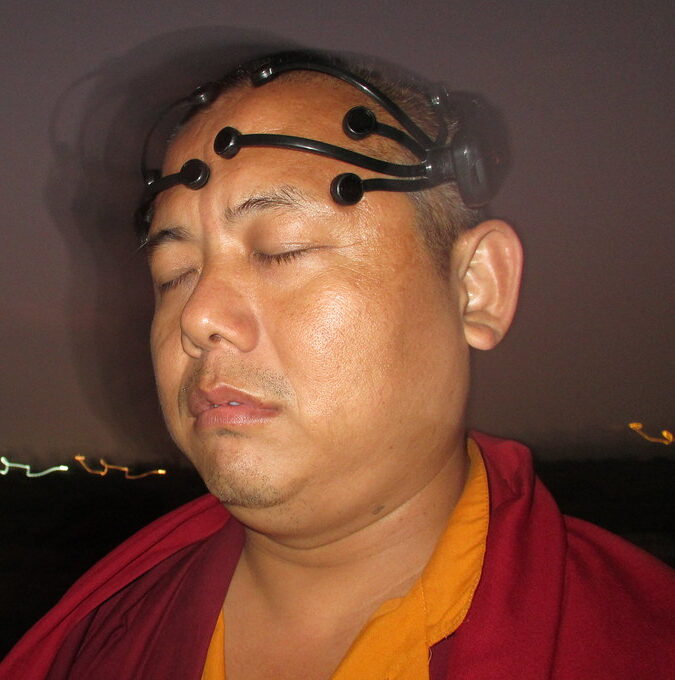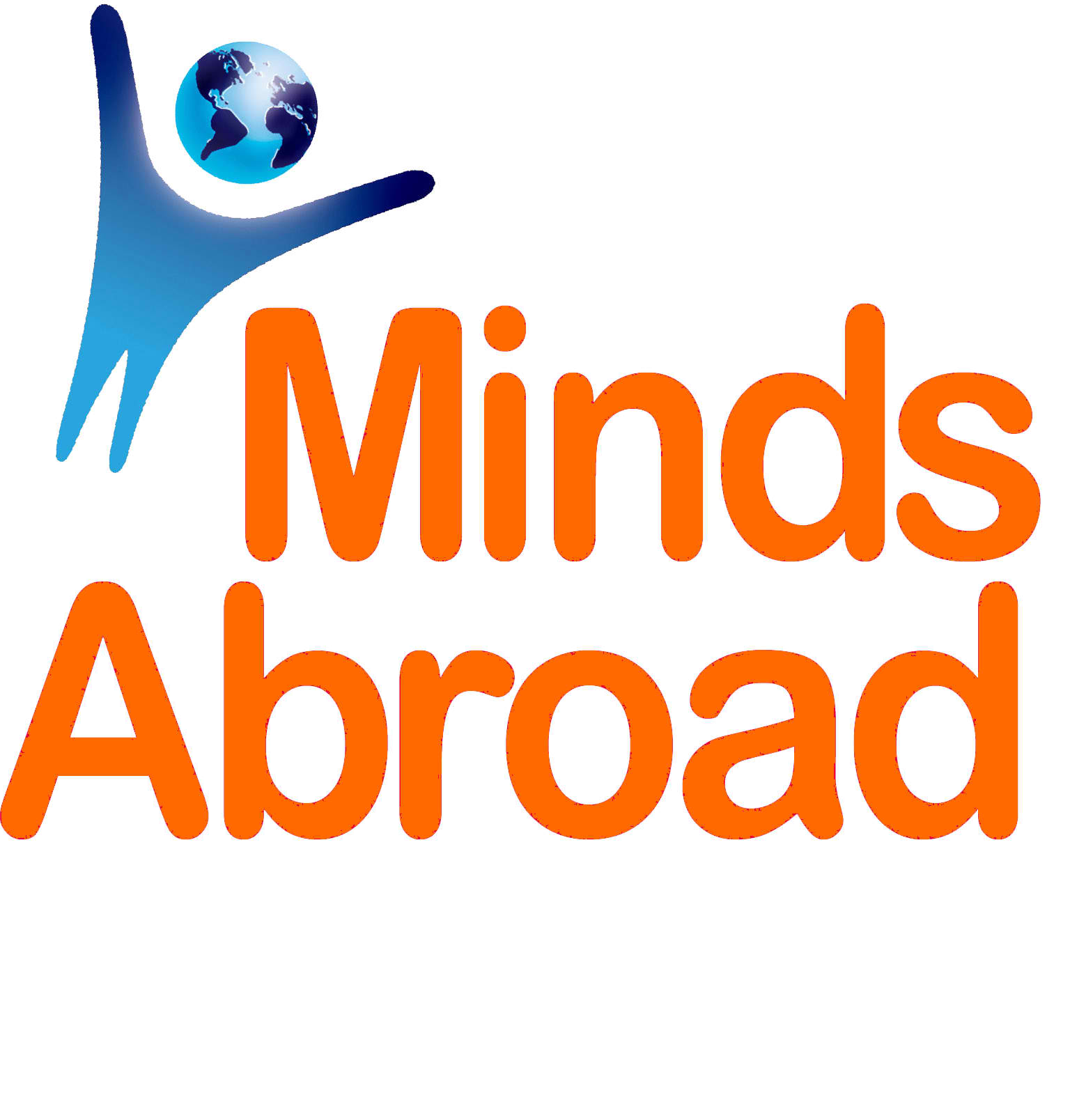Neuroscience and Psychology of Mindfulness Courses and Afternoon Meditation Labs
introduction
Minds Abroad offers a Neuroscience and Psychology of Mindfulness Course and Meditation Labs that draw upon ancient meditative practices with their roots in Thailand and Laos. Our programs highlight how recent neuroscience and psychology research supports the benefits of these practices. For several decades, Western science has been validating how these practices can significantly transform our minds and bodies.
While conducting our Neuroscience and Psychology of Mindfulness Programs and Meditation Labs, we will review the latest, ground-breaking neuroscience research on mindfulness techniques to understand how these practices can influence the inner workings of our minds. In addition to this research review, our programs include guided meditation sessions and live conversations with mindfulness practitioners with decades of experience.
Beyond our mindfulness courses, Minds Abroad also offers a variety of classes on Asian languages and cultures.

Upcoming Program Dates, Prices & Discounts
A Brief Introduction to our Neuroscience and Psychology of Mindfulness Programs and Meditation Labs in Thailand and Laos
Our mindfulness programs in Thailand is 10-11 days (depending on the year) and the class component will provide an introduction to the mechanics of mindfulness practices and foundational neuroscience and psychological research on those. The Laotian programs are shorter, 6-7 days, but will build upon the information in the Thai programs.
The Laos mindfulness programs will review more advanced topics covering the latest mindfulness techniques, and associated neuroscientific and psychological research around those to understand their implications on the structure and function of brain.
Our Laos program will be a more intimate one, involving smaller cohorts of students and more one-on-one, individual sessions, as it will deal with students, who are already familiar with the basic tenets of MBSR practices.
Attendees can do both sessions in one year. Alternatively, they can participate in our Thailand mindfulness program one year and our program in Laos, the year after. If attendees already have a basic understanding of what mindfulness entails, they can simply skip the Thai program and enroll in our Laos program. However, please note that these courses work well, if they are done together.
Program Costs and Discounts
Our program cost per attendee is as follows:
-Thailand: $1585/attendee
-Laos: $885/attendee
There are additional discounts for early enrollment (up to 10%) and for enrolling with friends (5% for one friend, 10% for two). To learn more about our discounts, visit our FAQ page.
Our program price includes the following items:
–Morning classes on ground-breaking academic research on neuroscience and psychology that assess the impact of meditation
-Afternoon meditation labs (participants experiment with a new and unique meditation technique each session, as taught by an instructor with decades of experience)
-Accommodations
-All meals each day
-A cell phone, SIM card, and a small initial credit for in-country calling
-Ground transportation within the country
-Detailed in-country orientation within the first few days of arrival
-24/7 staff support throughout the program
-Tickets to cultural sites and cultural sites listed in the program
Our program price excludes the following items:
-Visa fees (Only applicable to Laos)
-International flight fares to and from Southeast Asia
-Travel insurance is not included in the program price, but attendees are required to buy it
Schedules of Our Programs
Winter 2023/2024
Thailand – Weds 27 Dec 2023 till Sat 6 Jan 2024
Laos – Sun 7 Jan 2024 till 14 Jan 2024
Winter 2024/2025
Thailand – Fri 27 Dec 2024 till Sun 5 Jan 2025
Laos – Mon 6 Jan 2025 till 12 Jan 2025
Winter 2025/2026
Thailand – Sat 27 Dec 2025 till Sun 4 Jan 2026
Laos – Mon 5 Jan 2026 till Sun 11 Jan 2026
Our MBSR Programs Present the Latest Neuroscience Research on Mindfulness
The insights gained from our sessions in our programs will, not only, help attendees to explore and interpret various experiences of their lives in a different light, but will also, make them understand how MBSR practices and neuroscience can work hand-in-hand to transform our bodies and minds. Engaging in MBSR practices improves self-awareness. Most importantly, if mindfulness is practiced in a structured way on a regular basis, it has proven to be successful in leading to better interpersonal relationships and a life that is happier, healthier, and more resilient.
A Basic Understanding of How Mindfulness Affects the Brain Can Help Attendees Strengthen their Practice
Even if we are unaware of exactly how mindfulness can alter the brain, we still can reap the benefits of these ancient practices, which are now validated by psychology and neuroscience. A basic understanding of the neural mechanisms of mindfulness practices can help us reach a level of insight that we could not have attained otherwise, and further strengthen our motivation to practice it, no matter how busy we are in our daily lives.
Our Neuroscience and Psychology of Mindfulness Programs and Meditation Labs Are Founded on MBSR Principles
Our Neuroscience and Psychology of Mindfulness Course and Meditation Labs are based on the Mindfulness-Based Stress Reduction (MBSR) principles developed by Jon Kabat-Zinn and Saki Santorelli at the Center for Mindfulness at the University of Massachusetts Medical School. The attitudes one is taught to adopt and nurture while practicing MBSR, are mainly:
- Non-judging
- Patience
- Beginner’s mind
- Trust
- Non-striving
- Acceptance
- Letting go
- Generosity
- Gratitude
- Self-compassion
- Kindness
Mindfulness-based stress reduction (MBSR) is an evidence-based mindfulness technique that is both secular and rigorous, used to help people keep their stress, anxiety, depression, and pain at bay.
Program Goals
a) Provide a safe and nourishing environment for deep and grounded mindfulness meditation practice.
b) Open attendees to an intensive yet compassionate and secular program experience.
c) Guidance from seasoned teachers
d) Practicing noble silence or “Mouna”
History of Mindfulness, Part 1: Development of Mindfulness Meditation in India, its Spread and Establishment in SE Asia
In general, the seeds of mindfulness practice were planted in age-old, esoteric Hindu practices and, eventually, the Buddhist traditions in the Indian Subcontinent. It is believed that Siddhartha Gautama, the founder of Buddhism, was born and brought up in present-day Nepal and India. Hence, Buddhism, which is considered to have principally contributed to mindfulness practices, also shares some overlapping features with Hinduism.
Mindfulness has metamorphosed and expanded considerably over the centuries. Initially, originating in ancient India, mindfulness practice slowly expanded to Sri Lanka and later to areas of Southeast Asia that correspond to modern-day Myanmar, Laos, and Thailand. For an overall understanding of the origin of mindfulness practices in Hinduism and Buddhism, and its subsequent Buddhist refinement in ancient India, please visit this link.
History of Mindfulness, Part 2: Reinvention of Lay Mindfulness Meditation (Vipassana) in Colonial Burma and Spread to Thailand
In Myanmar (Burma), and in all other Southeast Asian countries such as Thailand and Laos, traditionally, insight meditation was practiced by a select number of Buddhist monastics. However, in Myanmar, as an integral part of a social and political movement against the British imperialists, and to restore the Buddhist Sangha (a community of Buddhist monastics) to its former glory, insight meditation (vipassana) was eventually embraced by the disenchanted laity, under the guidance of iconic Buddhist spiritual leader Ledi Sayadaw.
Later on, under the patronage of his successors, insight meditation reached the West. When Myanmar became a free country, the-then Prime Minister U Nu and legendary Burmese Theravada Buddhist monks such as Mahasi Sayadaw and his followers played a crucial role in uniting all the Burmese citizens under the common banner of Buddhism and bringing insight meditation to various parts of the world, starting from Thailand, Laos, Cambodia, and Sri Lanka.
U Ba Khin, another venerable vipassana meditation master, and his close disciple S.N. Goenka were instrumental in promoting insight meditation techniques in the West. For an in-depth understanding of the development of lay mindfulness meditation and its spread to other Theravada countries, including Thailand and Laos, please follow this link.
History of Mindfulness, Part 3: Burmese Vipassana Practice Spreads Worldwide and Is Transformed into MBSR
Vipassana has recently found large-scale popularity in the West, which can be attributed to a handful of Western mindfulness practitioners and secular organizations, who primarily drew their inspiration from Eastern religions, traditional belief systems, and philosophies. However, the insight meditation techniques in the West have undergone major changes in a bid to keep up with their cultural contexts. To gain an insight into how Burmese vipassana practices spread world-wide, and subsequently, evolved into MBSR, please follow this link.
Our Location in Thailand
Our Thai Neuroscience and Psychology of Mindfulness Course and Meditation Labs Are Located in the Cosmopolitan Capital of Bangkok
Although the Thai capital of Bangkok is a top favorite amongst backpackers, it has plenty of hidden gems in store for a vipassana enthusiast. Also, a Buddhist sanctuary, Bangkok’s landscape is dotted with almost 400 glimmering Buddhist temples that can be a sensory delight and quaint monasteries, where one can engage in “quiet sitting”, soaking up the tranquility that they offer.
For more information on this beautiful city, which is a melting pot of cosmopolitanism, modernism, and Theravada Buddhist traditions, please visit our page on Bangkok
Our Attendees Can Explore Other Locations in Thailand Before or After their Programs
To understand more about the history, culture and Buddhist heritage of Thailand, we encourage our attendees to explore other locations in Thailand before or after their programs.
Thailand is a country, dotted with magnificent temples, sprawling, sun-toasted, pristine, tropical beaches and home to a rich history and Buddhist heritage that speak through evocative ruins and monasteries with imposing grandeur. It is a country where history collides with cosmopolitanism. Before or after a program in Bangkok, if a program participant is interested in exploring other Thai cities of cultural and historic significance, please visit this link for more information.
Our Location in Laos
Our Neuroscience and Psychology of Mindfulness Course and Meditation Labs in Laos Are Located in its Peaceful and Laid-Back Capital Vientiane
Sitting beside the sacred Mekong river, the charming Laotian capital of Vientiane has a lot to offer beyond its peaceful vibes and languid pace of life. Program participants can take advantage of its laid-back atmosphere for quiet contemplation and soul searching. Outside of their programs, attendees can make the most of their time, exploring Vientiane’s centuries-old, gold-encrusted Buddhist temples and sites, and their hidden world of golden statues, Buddhist traditions and heritage lurking behind their walls. After one is done with one’s round of temples, one can check out its colonial history and wander down to its beautiful promenade by the Mekong River to see the sun setting with the promise of a new day. Attendees can also have conversations with English-speaking local monks to gain rich insights into the ascetic way of living.
Before or after a program in Vientiane, a participant can consider visiting other locations in Laos. To learn more about other locations, please click on this link.
Our Attendees Can Explore Other Locations in Laos Before or After their Programs
To gain an in-depth understanding of the vibrant culture, the beautiful landscapes, some of the age-old traditions that are becoming an anachronism and Buddhist heritage of Laos, we strongly recommend our attendees to visit other locations in Laos before or after their programs.
Laos, a country crisscrossed by the sacred Mekong River and nestled amidst beautiful mountains, has a rich historical legacy. Besides exploring the country’s incredible Buddhist heritage and colonial history and architecture against a rich tapestry of cultures of the country’s hill-tribes, program participants can simply visit this small charming and peaceful country to find their own solace and experience a tranquility, which is impossible to seek out in, most of today’s cities and suburbs.
To know more about Laos, visit our page here.
